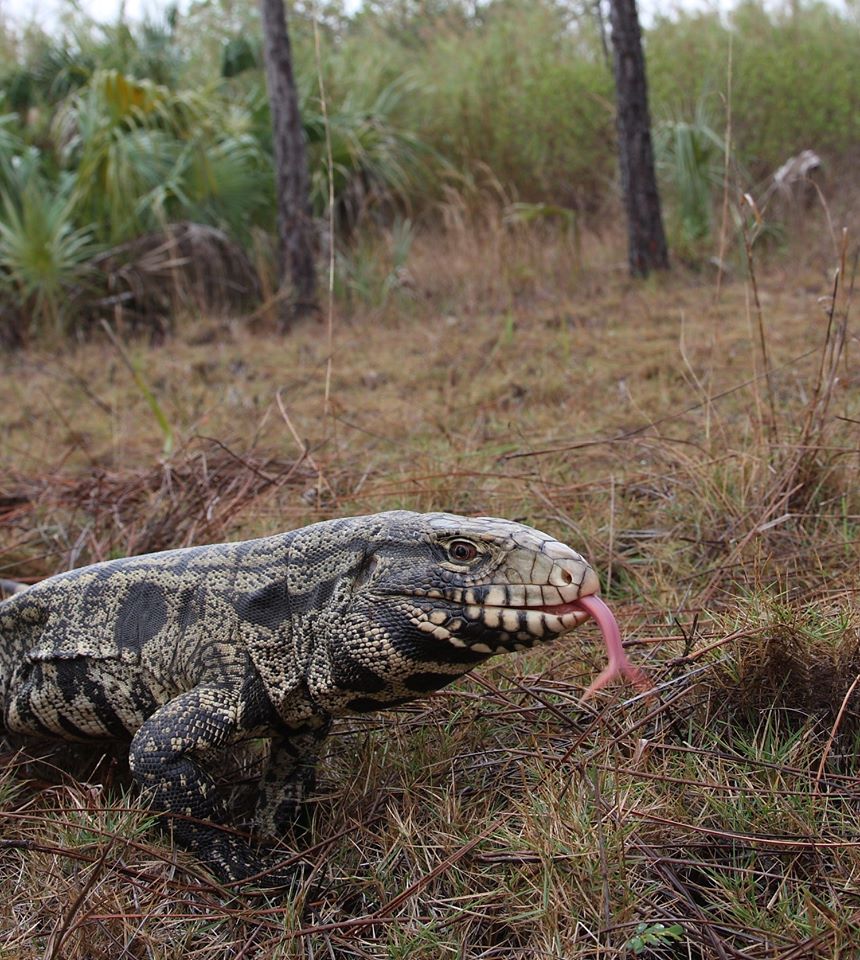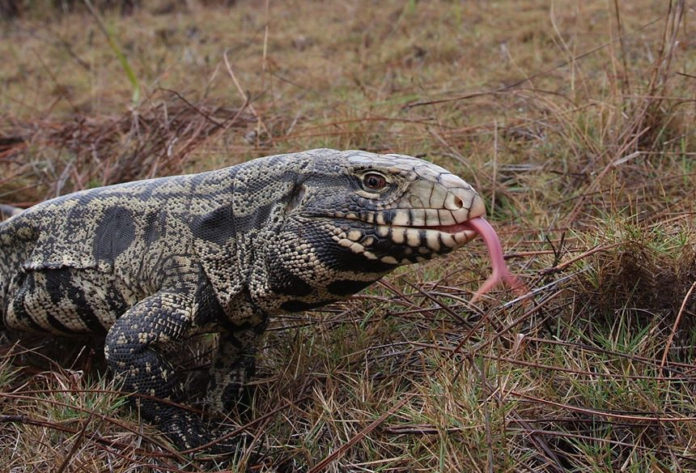According to a report by the South Carolina Department of Natural Resources, South Carolina has documented its first sighting of the non-native black and white tegu lizard. It was found in Lexington about 3 weeks ago.
Now, SCDNR has reported an increase of sightings across the Palmetto State.
SCDNR has confirmed eight additional sightings of the non-native black and white tegus since the initial report from Lexington County in August.
Five of the sightings were from Lexington and Richland counties, two from Berkeley County, and one from Greenville County. Of these, five tegus have been successfully removed from the wild.
“The number and distribution of black and white tegu reports in just a few weeks is concerning. Documented sightings come from as far north as Greenville county and as far south as Berkeley county,” said State Herpetologist Andrew Grosse.
“The individuals removed measured between 2 and 3 feet long and consisted of both females and males. Necropsies show the tegus have all been scavenging native plants and animals, including toads, various insects and muscadines. This indicates these individuals are wild, free roaming and foraging opportunistically. It is important that this species does not establish in our state.”
Popular in pet trade, the invasive species has been established in both Georgia and Florida, likely a result of release or escape.
The individual removed from Lexington County in August was an adult female measuring about 2.5 feet long; however, black and white tegu lizards can reach up to 4 feet in length and weigh more than 10 pounds as adults.

Please report any sightings of black and white tegus in the wild to Andrew Grosse, grossea@dnr.sc.gov. If possible, please submit a photo, location, and time and date the individual was seen.
As a non-native species, the tegu lizard in the wild in South Carolina are not protected by state wildlife laws or regulations and could end up affecting the ground-nesting bird population including turkeys, grouse and pheasant.
Visit here for more information about black and white tegus, including natural history and identifying characteristics.










